|
Last week the German Government approved a regulation to protect small investors investing through online securities crowdfunding portals. The law drafted in 2014 was seen by many industry players as way too restrictive, potentially able to kill the growing German market of digital investments. For the relief of many stakeholders, the approved version is softer than the original one, having eliminated a couple of the most stringent restrictions. The regulation on online investing was on the table of Angela Merkel for a while. The first draft received many criticisms from the German crowdfunding ecosystem. In fact, the proposed rules included points which created unnecessary obstacles to online investing. For example, there was a rule that investors have to send an investment information sheet via mail and sign it manually. The approved version of the Small Investors Protection Bill includes a reviewed Crowdinvesting Exemption, which leaves out previous points regarding mailing of an investment information sheet and signature. It also increases the cap under which fundraisers do not need to produce a long prospectus: from €1million to €2.5 million. Furthermore, the investment limit for retail investors has been increased up to €10,000 if they can provide a proof that their assets or income are at a sufficient level to bear the risk of loss. Otherwise, it remains at €1,000. Soon we will see if this crowdinvesting regulation has struck the right balance and will help digital investing to flourish in the country. Reference: Nienaber, M. (2015). Germany approves crowdfunding rules to protect small investors. Reuters. 23 April. This is an edited version of a post originally posted at http://www.crowdvalley.com/news/germany-adopts-regulation-for-online-investing by Irene Tordera. You are free to re-edit and repost this in your own blog or other use under Creative Commons Attribution 3.0 License terms by giving credit with a link to www.startupcommons.org and the original post. Photo credit: Got Credit, http://www.gotcredit.com/. The photo was originally published on Flickr. It has been used to illustrate this text under Creative Commons Attribution 2.0 License terms. No changes have been made.
Quite soon there will be another startup event anniversary: the 10th Startup Day 2015. It is a one-day Stockholm startup event organised by Stockholm School of Entrepreneurship (SSES) in partnership with Stockholm Business Region, an investment promotion agency owned by the City of Stockholm, Braintree, BDO, Industrifonden, Prime, Quattroporte, SUP46, Trustly, IBM as well as some startups and other companies. The event slogan reflects the main event idea: 1000 minds. 500 founders. 1 day. It means that there will be over 1000 participants: entrepreneurs, startups, investors, media representatives, etc. At least 500 of them will be founders of companies operating in Sweden or at the international level. One day appointed to the event indicates that the event programme will be very intense. Programme The event will start with a few speeches. One of the first speakers is Cristina Riesen, General Manager EMEA at Evernote, who will talk about how intelligence, creativity and computing affect work routines. Another speaker, Jesper Kouthoofd, Founder of Teenage Engineering, will share some insights on how to create a good platform for work or personal needs. Henrik Lenberg, Founder of Auxy, will give a speech with a self-explanatory title: Building a Product that People Love. In addition, David Rowan, Editor of WIRED UK, will later interview all three speakers. The next point on the agenda is Skills Workshops and Startup Pitches, which will be taking place at the same time as some other speeches. The workshop session consists of three 30-minute workshops. In the first one, Alex Budak, Country Manager Sweden at Reach for Change, will introduce social entrepreneurship and explain how to create more impact with startups. In the next workshop, Axel Cornell, Scrum Trainer, will present a user story map, illustrate it with everyday examples and show how it can be used to work on backlog. Finally, Laura Lilja, CEO of Nordic Search, will discuss the importance of search engine optimisation (SEO) for startup work. Simultaneously, there will be a startup pitch session. There will be eight 20 or 30-minute pitches which will be moderated by Sara Mattsson, Community Manager at STING, a Swedish incubator, and Terrence Brown, Associate Professor of Entrepreneurship and Innovation at the Department of Industrial Economics and Management, KTH Royal Institute of Technology in Stockholm. The performances will be evaluated by investor panels. To see the complete list of the participants, please click here. There will also be another set of simultaneous talks. For example, Caroline Walerud, Cofounder of Volumental, will focus on the following topic: Shifting the Fashion Industry from Mass Production to Fully Customized Products. Ebba Åkerman, Founder of United Invitations, will discuss what constitutes startup success in Stockholm. Ankit Desai, Digital Strategist at Universal Music, will explain why Stockholm is successful in the music industry. There will also be a Paypal Seminar on new payments opportunities for startups. Later Fredrika Gullfot, Founder and CEO of Simris Alg, will examine the topic: Empowering Change: Activism Through Entrepreneurship. Martin Willers, Cofounder of People People, will concentrate on the characteristics of establishing a company in the system context. The programme will close with the explanation of bootstrapping by Martina Elm, Cofounder of Confetti, etc. More information can be found on the official event website. The author of this text is Birute Birgelyte, PR and Communications Trainee at Startup Commons. You are free to re-edit and repost this in your own blog or other use under Creative Commons Attribution 3.0 License terms by giving credit with a link to www.startupcommons.org and the original post.
Last week we informed you about the first IPP call for proposals for 2 accelerator programmes:
Today we would like to share with you the second part of the interview with Silja Leinonen, Innovation Expert at Finland–Vietnam Innovation Partnership Program (IPP), an Official Development Assistance (ODA) programme financed by the Governments of Vietnam and Finland. Both IPP Innovation Accelerators include the 6-month training programme Fast Track. It has a world-class curriculum adapted to the Vietnamese context. There will be mandatory, optional and tailored modules led by experienced international and local coaches. Could you describe in more detail the training curriculum? What topics will be mandatory for all participants? It is a curriculum on innovation and entrepreneurship that is tailored to the characteristics and needs of the Vietnamese market and targeted towards the high growth company generation. The curriculum modules are currently under development. All teams will choose around 6 modules. Some modules like Disruptive Innovation will be mandatory. Others can be chosen freely based on the team’s specific needs and weaker knowledge areas. Say a team wants to brush up its international sales and marketing skills or needs to apply design thinking in its solution. Modules related to these areas will be available for selection. Tailored modules related to, for example, the needs of innovation system developers will be developed together with the teams and international experts. The broader target of the IPP curriculum development is that after the curriculum has been tested with IPP projects this year, it could be offered as an open-source curriculum to local universities and training institutions. Vietnam is lacking curricula that combine innovation and entrepreneurship and are tailored for local needs, and the IPP is trying to respond to this need. Could you reveal any names of the experts who will be coaching in Fast Track? We have not selected these experts quite yet but we are bringing in both Vietnamese and international top-notch mentors, trainers and domain experts. Also, we’ll be using a pool of 10 young professionals who will go through the IPP curriculum before the project starts and will thus be a fresh training resource for the teams. Graduates of the IPP Innovation Accelerators will be given an opportunity to pitch at the IPP Demo Day at the end of 2015. Could you provide more details about the event? The Demo Day will be an opportunity for the teams to pitch in front of national and international investors and receive public exposure. Soon after the end of the year, the teams will have a chance to apply for a larger second stage grant, and teams that manage to attract external investment through the Demo Day or other competitions, events and channels will stand a better chance of receiving a larger IPP grant. The IPP covers 70% of the project costs related to human resources, expert services, travel and training fees. Why is there this 70% limit? Why is there no reimbursement of costs for the technical development of projects? Could applicants expect to receive any kind of assistance from the IPP team in attracting extra funding for their projects? The 70% level derives from the idea that the project teams should have sufficient financial viability and backing themselves. By securing 30% by themselves, the teams demonstrate that they are serious and committed to the project. Innovative solutions which the IPP is looking to support require a lot of work and human resources. The teams need money to commit their staff to work full time on their projects, acquire new skilled staff or external world-class expertise, and to travel abroad to research the market and make necessary connections. The development of a product or service requires technology and often the development of technology. The IPP supports human labour needed for the development work. Money is of course needed for equipment and other technology costs. Luckily, there are other sources of potential funding available for that. Part of the grant from the IPP can be used for efforts related to attracting more growth funding. The IPP will also do its best in connecting the teams with potential Vietnamese and international investors and other supporters, although the teams themselves are running their show and are responsible for their networking efforts. In 2015, the IPP also runs a training programme for future Innovation Champions in Vietnam. It is 8-month full-time intensive training for 10 talented future innovation coaches, mentors, trainers and consultants from the private and public sector. Could you provide more information about the training? The Innovation Champion training is a two-part practical training programme. Talking with startup teams in Vietnam, we’ve noticed that the trainer pool for growth companies in Vietnam is very limited and relies on a small number of individuals and companies. We’ll help to grow this pool by training 10 high-calibre young professionals this year and more later. The attendees will go through an intensive two-month course based on the IPP curriculum and then move on to coach IPP projects through this curriculum under the supervision of experienced mentors. Upon graduation from the programme, I’m sure these individuals will be a wanted resource in the innovation system here. The IPP will be implemented between 2014–2018. At the moment, it is in its second phase. What are the IPP plans for the future? The IPP will end in 2018 and at the same time the Finnish direct development assistance comes to a close. By that time, we hope to have created some long lasting impacts as already mentioned before: deeper business and innovation partnerships between Finland and Vietnam, increased innovation capabilities in Vietnam through better I&E education and training resources as well as positive socio-economic impacts through successful, next-generation Vietnamese startups that will hopefully conquer the world. We also hope some of our funding and support instruments will be transferred to Vietnamese innovation funding agencies such as the newly established National Technology Innovation Foundation (NATIF). In that way, IPP work would not end in 2018 but would continue in a sustainable way through local agencies. We are also focusing a lot on organising many events. These will hopefully create new and long-lasting connections within Vietnam and help to connect Vietnam to the world. Is there anything else you would like to add about the IPP Innovation Accelerators or any other IPP projects? I’d like to encourage all readers of this article to connect with the IPP for further talks and collaboration. Please visit our website, write us an email or come visit our office when in Hanoi. Thank you for the conversation. The author of this text is Birute Birgelyte, PR and Communications Trainee at Startup Commons. You are free to re-edit and repost this in your own blog or other use under Creative Commons Attribution 3.0 License terms by giving credit with a link to www.startupcommons.org and the original post.
Finland–Vietnam Innovation Partnership Program (IPP), an Official Development Assistance (ODA) programme financed by the Governments of Vietnam and Finland, has announced the first call for proposals for 2 accelerator programmes:
The first programme is addressed to new innovative Vietnamese high growth companies which work on their first products or services for international markets. The second programme is meant for consortiums registered in Vietnam which develop services (incubators, accelerators, etc.) to support local high growth startups. Both programmes reflect the main IPP aims: (1) to boost sustainable economic growth in Vietnam, (2) develop a strong local innovation ecosystem and (3) support Vietnamese efforts to become an industrialised middle-income knowledge economy by 2020. Applicants selected for the accelerator programmes will receive the following support:
All proposals must be written in English and submitted by 4 May 2015. In order to get more detailed information about the IPP Innovation Accelerators and some other projects, I have asked Silja Leinonen, Innovation Expert at Finland–Vietnam Innovation Partnership Program (IPP), some questions. Applications for the IPP Innovation Accelerator for New Innovative High Growth Company Projects will be evaluated according to the following criteria: • project team • collaboration • need for the solution • the solution • benefits of the solution • competition and positioning • business logic • financing of the project and the company • project plan • project budget and finances, including financial feasibility. To which selection criteria should applicants pay special attention in your opinion and why? We will be performing a qualitative evaluation of the proposals focusing on those criteria. All aspects are important and what counts is the applicant’s ability to produce the complete package convincingly. It takes a lot of time and many iterations from project teams to tell concisely about market needs, their specific solution, its benefits for the customer as well as competition, and to gather the right team members and adequate financial resources to go through with the project. However, time taken to plan, iterate and make a good proposal will pay off in the end. The eligibility criteria for IPP support are quite strict. All business proposals which fall into the following categories will be rejected: • basic improvements to existing products, services, processes and business models • innovations that lower the production costs of existing products • direct copy of something that already exists • exporting something that already exists • ideas in research or a really early stage of the development of product / service • not able to find needed financial resources. It seems to be quite a difficult task to offer an innovative business idea and at the same time have enough funds to develop it into a valuable business project. Could you give any useful tips for applicants for the IPP Innovation Accelerator on how to become one of the 20 (or less) selected ones? It is indeed a difficult and challenging task. We expect IPP projects to demonstrate a disruptive approach to innovation and an appetite for fast growth that also attracts other investors besides the IPP quite quickly. Although important, the IPP is not supporting long R&D projects and basic improvements to existing products. We want to challenge project teams to grow into next-generation Vietnamese success stories. You also mentioned the challenges of finding proper financial resources. That’s a common struggle for all startups and growth companies. The IPP first stage support focuses on a short time frame of 6–9 months and a relatively small project budget. We are asking the applicants to convince us about their liquidity during this project only. External international independent evaluators will have at least one remote face-to-face interview with each applicant to collect more information about their project proposals for both IPP Innovation Accelerators. During these interviews, the projects will also be evaluated in terms of
Although the IPP does not give priority to any of these areas in the application evaluation process, which area from your personal observations would be of special importance to improve the socio-economic situation in Vietnam? Being an ODA programme, the IPP focuses on the creation of positive socio-economic impacts. Many of these impacts won’t be visible until the programme ends or long after. We expect the companies we support to generate tax revenue and create new jobs in Vietnam. The innovation system development projects aim at creating better support structures for Vietnamese startups and young high growth companies, and in that way help the economy and make entrepreneurship in Vietnam easier and accessible to more people. Similarly, we expect that the IPP activities related to innovation and entrepreneurship training and education will in time contribute to increased innovation capabilities in Vietnam and through that increased competitiveness and wellbeing for all. The IPP, the Ministry for Foreign Affairs of Finland – the donor – and the Vietnamese Ministry for Science and Technology – our host organisation – will be following how the Finnish and Vietnamese Governments’ focus themes and cross-cutting objectives are reflected in IPP projects and other activities. Based on the interaction we have had with companies and innovation system development teams this spring, I believe many of the projects that will be submitted in this call will focus on solving a pressing problem or challenge in Vietnam, Southeast Asia and on the global scale. This seems to be a natural part of thinking of many entrepreneurs in Vietnam. The IPP is trying on its part to underline that business can truly have a positive impact and can help in solving wicked problems from climate change to inequality. The objectives of the Ministry for Foreign Affairs of Finland, one of the sponsors of the IPP, are clearly indicated (see the previous question). The programme could benefit the Vietnamese society a lot as it targets at new innovative Vietnamese companies and developing a local innovation ecosystem. How about Finland: in what ways could the Finnish society directly benefit from the programme? Given that the Finnish development aid to Vietnam is coming to an end in 2018, one of the important tasks of the IPP is to help in the creation of sustainable business and innovation partnerships between Finland and Vietnam. The IPP can be seen as a bridge programme between the Official Development Assistance (ODA) and future business, innovation, research and education based co-operation between Finland and Vietnam. We are trying our best to get Finnish companies and organisations involved in our accelerator projects and organisations, either as project and business partners or as sources of expertise for the teams. We will be connecting our projects with Finnish and other international experts and companies whenever relevant. We are also working as part of the local Team Finland network to promote closer business ties between Vietnam and Finland. In addition, I’d like to highlight that Finnish and other foreign companies that will establish a daughter company, joint company or spin-off in Vietnam are eligible for IPP direct grant support. We hope to see more interest towards Vietnam in the Finnish and other international business communities. The second part of the interview will be published next week. The author of this text is Birute Birgelyte, PR and Communications Trainee at Startup Commons. You are free to re-edit and repost this in your own blog or other use under Creative Commons Attribution 3.0 License terms by giving credit with a link to www.startupcommons.org and the original post.
Between 23–24 April Amsterdam will host The Next Web (TNW) Conference Europe 2015. This year the event celebrates its 10th anniversary. Such a date can only mean one thing: it is an event worth attention. What is so special about it? Tim Ferriss, Author of The 4-Hour Work Week, describes it as follows: “TNW is the best breed of event. Smart attendees, provocative talks, and masterful execution. There are few things I travel around the world for, but TNW is one of them.” The unique character of the conference is also reflected by the main event objectives, which are the following: (1) to offer many valuable discussions on the latest web trends, (2) share the best business practices and (3) provide a networking platform for the leading influencers of technology and innovation, startups with international growth potential and companies which have already achieved success. Some facts about the TNW Conference Europe The conference is an annual event founded by 2 serial entrepreneurs: Boris Veldhuijzen van Zanten and Patrick de Laive in 2006 in Amsterdam. The conference soon attracted more international attention and became one of the “must-attend [events] for web enthusiasts and tech companies around the globe” (iamsterdam.com). This year the Amsterdam conference has already attracted over 3500 participants. The interest in the event is well illustrated with a long list of international partners supporting the project. There are such names as Startup Amsterdam, Adyen, Persado, Braintree and FlinchFactor, to mention a few. The Next Web team also organises TNW conferences and other business events in the US and Latin America. One of their next projects is The TNW (TNW) Conference in New York in November 2015. Programme and attendees The TNW Conference Europe in Amsterdam is a 2-day event with a hectic agenda. There will be many talks, presentations, (panel) discussions, interviews, boost startup sessions and hack battle presentations, etc. The programme is still being updated. We would like to review some of the activities and present some attendees. The conference will be opened by Boris Veldhuijzen van Zanten, Cofounder of TNW, and Neelie Kroes, former Vice President of the European Commission responsible for the Digital Agenda for Europe. At the moment, she is working as Special Envoy for Startups in the Netherlands. Apart from Ms Kroes, there will be also other politicians attending such as Sophia in ‘t Veld, a Dutch representative in the European Parliament working on new European privacy laws, as well as Kajsa Ollongren, Deputy Mayor of Amsterdam. Thus, there will be an opportunity to receive updated information relevant for digital business from the top-level politicians and ask them some questions. The event offers many thought-provoking talks. For example, Gary Shapiro, CEO of the Consumer Electronics Association, will give a speech on Disruptive Innovators Under Attack, in which he will discuss the opportunities and potential challenges which the newest business models and technologies can bring. He will also invite to a discussion on how to balance government regulations on innovations and free market competition. Another engaging speech will be No Gatekeepers – Innovation at Scale at Amazon.com by Werner Vogels, Chief Technology Officer at Amazon.com. He will share Amazon’s best practices of innovation management. He will stress the role of strong company values and culture. Finally, he will discuss some opportunities on Amazon.com platforms for innovative projects. There are also many other talks worth attention with self-explanatory titles: (1) Why Most Digital Business Transformations Will Fail (And How to Avoid It) by Martin Gill, Vice President of Forrester, (2) The Secret to Creating Successful Digital Products and Services by Aaron Shapiro, CEO of Huge, (3) The Next New Thing: Trends in the World of Venture Capital and Startups by Deborah Magid, Director of Software Strategy at IBM Venture Capital Group, and (4) Getting to Alpha – The 7 Habits of Breakthrough Innovators by Amy Jo Kim, Cofounder of Shufflebrain, etc. Furthermore, the conference will hold various panel discussions. One interesting example is Hollywood and Startups with the following participants: Cody Simms, Managing Director of Techstars, Robyn Ward, Head of New Media Ventures, UTA, Daniel Altmann, Cofounder and CEO of Naritiv, and Nick Adler, VP of Business Development at Cashmere Agency. Many questions will be discussed: startup engagement with Hollywood, entrepreneur relationship management in the entertainment industry, differences between talent agents, managers, influencers, etc. There will be also explained how content deals are done, whether startups should raise capital from the entertainment industry and the characteristics of tech startup work in the entertainment industry. In addition, among the conference participants, there will be also some recognised business book authors, who will present some ideas from their books. For example, David Allen, Author of Getting Things Done, will share his expertise on personal and organisational productivity. Samuel Hulick, Author of The Elements of User Onboarding, will teach about growing a strong userbase by offering quality onboarding experiences for users. Gabe Zichermann, Founder of Gamification Co. and Author of The Gamification Revolution, will share insights on developing a successful gamification strategy. Finally, some entrepreneurs and representatives of some big international companies will share their experience in the form of talks, presentations or interviews to guide others. The list of participants is quite long. There are such names as Samir Patel, President and CEO of Growth Machines and Growth Mentor at 500 Startups, Nicolas Brusson, Cofounder and COO of BlaBlaCar, Jitse Groen, CEO of Takeaway / Thuisbezorgd, Pieter van der Does, Cofounder and CEO of Adyen, Eric Brewer, VP of Infrastructure at Google, Xabier Ormazabal, Head of EMEA Marketing at Dropbox, Mark Randall, VP of Creativity at Adobe, Hugo Raaijmakers, Global Innovation Director at Philips International, etc. It is quite difficult to describe the TNW Conference Europe 2015 concisely without risking of omitting some important information. Naturally, in order to form a more informative opinion about the conference, you should refer to the official event programme. The author of this text is Birute Birgelyte, PR and Communications Trainee at Startup Commons. You are free to re-edit and repost this in your own blog or other use under Creative Commons Attribution 3.0 License terms by giving credit with a link to www.startupcommons.org and the original post. Photo credit: Ben Rogers. The photo was originally published on Flickr. It has been used to illustrate this text under Creative Commons Attribution 2.0 License terms. No changes have been made.
Startup Commons supports TECHFEST Vietnam 2015, a tech startup event organised by the National Agency for Technology Entrepreneurship and Commercialization Development (NATEC), the Ministry of Science and Technology of Vietnam, in cooperation with hub.IT, Tech In Asia, Hatch! Program and the Founder Institute. We already introduced the event in one of our recent blog posts. This time we would like to present you some event investors hoping that this information could influence decisions of some of you to include this event on your May agendas. Investors’ Profiles Andrew Wong, Founder and Chief Executive Officer at MAD Incubator Not only is Mr Wong Founder and Chief Executive Officer at MAD Incubator, Malaysia, but also holds other important positions. He is President of the National Incubator Network Association (NINA) of Malaysia, a Member of the Asian Association of Business Incubators (AABI) and a Member of the PEMANDU Committee on Incubator Development at Malaysia’s Ministry of Science Technology and Innovation (MOSTI). He is also the architect of Malaysia’s Incubator Development and one of the pioneers of the ICT Entrepreneur Cooperatives in the country. At the moment, he is Chairman of the Koperasi Jaringan Usahawan Teknologi (KeJUT) Wilayah Persekutuan. In his career, Mr Wong has started 6 incubators and 2 venture capital funds. Jeffrey Paine, Cofounder of Golden Gate Ventures Mr Paine’s company is an early-stage technology incubator in Singapore. He has also established there the Founder Institute. At the moment, he is working on expanding its activities in Southeast Asia. In addition, he is an investor and advisor to Redmart, Tradegecko, Coda Payments, AtticTV and Flutterscape / monoco. Dmitry Amilov, Founder and Managing Partner of Frontier Ventures Mr Amilov has 15 years of experience in private equity and venture capital investment in the Internet and media. His work profile is rich. He was Managing Partner of ru-Net Ltd, Manager Director of Amedia, Cofounder of ivi.ru Media Ltd, Head of Media Investments in Russia and the CIS at Access Industries, First Deputy General Director and a Member of the Board of Directors at TNT, a Member of Gazprom-Media Executive Committee and Vice President of the Sputnik Group, etc. At the moment, he is Managing Partner of Frontier Ventures and a Member of the Expert Panel of the IT Cluster at Skolkovo Fund. Nguyen Hoang Ly, Founder and President of KOMTEK KOMTEK is a technology consulting and e-commerce company in Vietnam. Mr Ly worked as Technical Director at SaigonTel and General Director at Vietunion. He is also Founder and a former Board Member at Vietunion Corporation. Here he developed Payoo e-wallet. He has established several companies in Vietnam and other countries. He knows the regulations of Vietnam well and has some contacts with the government. More information on TECHFEST 2015 can be found on the official event website. The author of this text is Birute Birgelyte, PR and Communications Trainee at Startup Commons. You are free to re-edit and repost this in your own blog or other use under Creative Commons Attribution 3.0 License terms by giving credit with a link to www.startupcommons.org and the original post. Photo credit: TECHFEST Vietnam 2015.
Small and medium-sized enterprises (SMEs) face various challenges. Although this sentence has appeared in so many discussions about entrepreneurship, there are still many questions that need to be addressed. One of such questions is the fragmentation of investment market, which a group of international business professionals, enterprise support organisations and research institutions has decided to tackle with the InvestHorizon programme. It is a project funded with support from the European Commission with the aim of increasing investments made in innovative European SMEs. In order to help enterprises, investors, intermediaries (incubators, accelerators, education institutions) and policy-makers working on venture policies, the InvestHorizon team has decided to organise the InvestHorizon Policy Conference on 23 April in Brussels. About the event The conference aims to present new insights into investment readiness. There will be presented new strategies, tools and needs in fields such as access to finances, matchmaking, etc. If you would like to receive updated information about investment opportunities for your business and interact with European policy-makers, entrepreneurship experts and other entrepreneurs, this event is a good option to consider. Programme InvestHorizon Policy Conference is a one-day event with a five-session agenda. The event will open up with a plenary session in which some speeches will be given. Wolfgang Burtscher, Deputy Director General of the European Commission Directorate of Research and Innovation, will talk about boosting investment readiness of European enterprises. William Stevens, Founder and CEO of Europe Unlimited, will introduce the main objectives of InvestHorizon. Colin Mason, Professor of Entrepreneurship at Adam Smith Business School, University of Glasgow, will present the newest trends in investment readiness programmes. Erik Vermeulen, Professor of Business and Financial Law at Tilburg University and Tilburg Law and Economics Center (TILEC), will share the key findings of InvestHorizon assessment. After the opening speeches, there will be a round-table discussion on the topic: State-of-play and challenges to support R&I driven SMEs, moderated by Prof. Vermeulen. The panel will consist of Robert Sanders, Head of International Projects at EBN European B.I.C. Network, Ben Butters, EU Affairs Director at EUROCHAMBRES, Adrienne Lotos, Head of Office at the European Crowdfunding Network, Brigitte Baumann, Founder and CEO of Go Beyond, and Simona Grobelnik, Development Advisor at the Slovene Enterprise Fund. Later there will be 2 workshop sessions. Conference participants will have an opportunity to participate in 2 workshops out of 3. The first workshop will present the best practices and recommendations on investment readiness. The second one will provide information on investor sensitisation. The third one will focus on (cross-border) matchmaking. Finally, in the closing plenary session some final results will be presented. In addition, the Better Practices Contest will be introduced. More information can be found on the official event website. The author of this text is Birute Birgelyte, PR and Communications Trainee at Startup Commons. You are free to re-edit and repost this in your own blog or other use under Creative Commons Attribution 3.0 License terms by giving credit with a link to www.startupcommons.org and the original post.
|
Supporting startup ecosystem development, from entrepreneurship education, to consulting to digital infrastructure for connecting, measuring and international benchmarking.
Subscribe for updates
Startup ecosystem development updates with news, tips and case studies from cities around the world. Join Us?Are you interested to join our global venture to help develop startup ecosystems around the world?
Learn more... Archives
December 2023
Categories
All
|
- Startup Commons
- Business Creators
-
Support Providers
- About Support Providers
- Learn About Startup Ecosystem
- Startup Development Phases
- Providing Support Functions
- Innovation Entrepreneurship Education
- Innovation Entrepreneurship Curriculum
- Growth Academy eLearning Platform
- Certified Trainers
- Become Growth Academy Provider In Your Ecosystem
- Growth Academy Training On-Site By Startup Commons
-
Ecosystem Development
- About Ecosystem Developers
- What Is Startup Ecosystem
- Ecosystem Development
- Ecosystem Development Academy eLearning Platform
- Subscribe to Support Membership
- Ecosystem Operators
- Development Funding
- For Development Financiers
- Startup Ecosystem Maturity
- Case Studies
- Submit Marketplace App Challenge
- Become Ecosystem Operator
- Digital Transformation
- Contact Us
- Startup Commons
- Business Creators
-
Support Providers
- About Support Providers
- Learn About Startup Ecosystem
- Startup Development Phases
- Providing Support Functions
- Innovation Entrepreneurship Education
- Innovation Entrepreneurship Curriculum
- Growth Academy eLearning Platform
- Certified Trainers
- Become Growth Academy Provider In Your Ecosystem
- Growth Academy Training On-Site By Startup Commons
-
Ecosystem Development
- About Ecosystem Developers
- What Is Startup Ecosystem
- Ecosystem Development
- Ecosystem Development Academy eLearning Platform
- Subscribe to Support Membership
- Ecosystem Operators
- Development Funding
- For Development Financiers
- Startup Ecosystem Maturity
- Case Studies
- Submit Marketplace App Challenge
- Become Ecosystem Operator
- Digital Transformation
- Contact Us


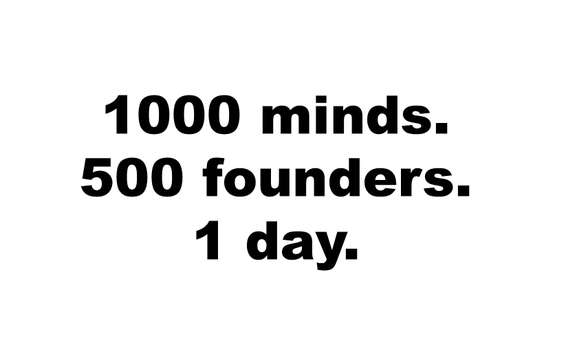
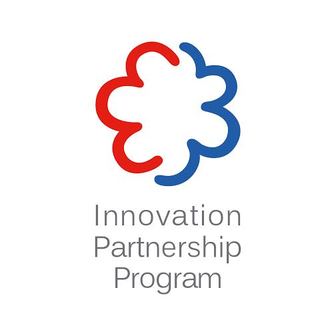
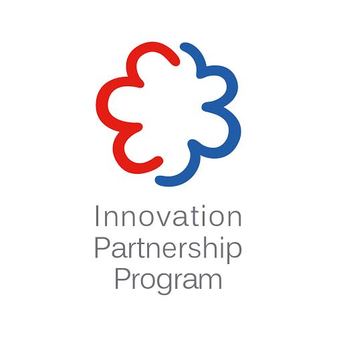


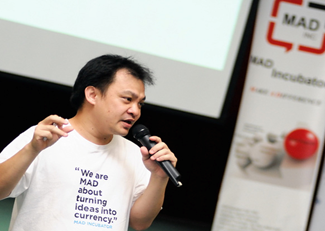
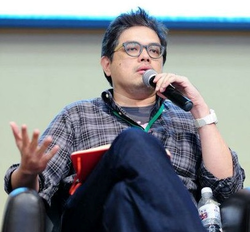
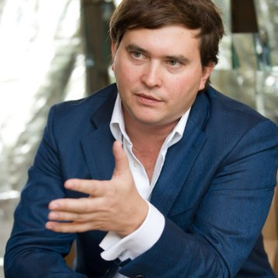

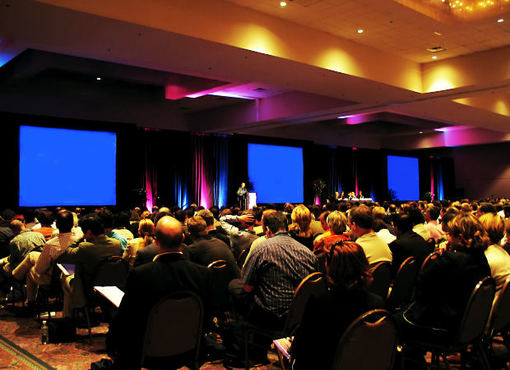

 RSS Feed
RSS Feed

